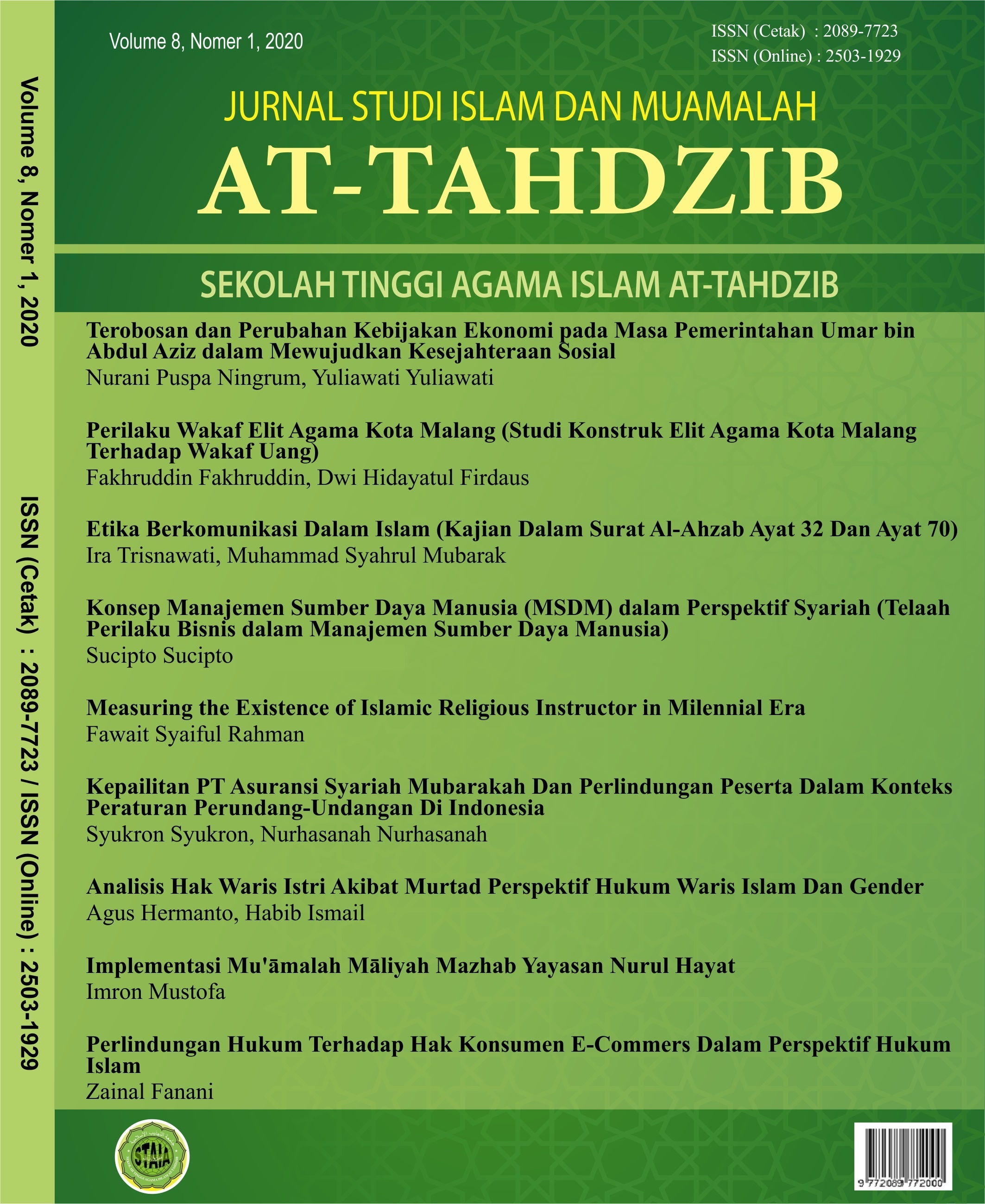Perlindungan Hukum Terhadap Hak Konsumen E-Commers Dalam Perspektif Hukum Islam
Abstract
Technology information is currently a double-edged sword, because in addition to contributing to the improvement of welfare, progress and human civilization, as well as being an effective means of acts against the law, the focus of this research focuses on protecting consumer rights in e-commerce transactions and how the logical consequences are. for sellers and buyers in Islamic law to conclude that the legal protection of consumer rights in e-commerce, the right to get compensation, indemnity, and / or replacement, if the goods and / or services received are not in accordance with the agreement or not as it should be, Right to Get Advocacy, Protection and Efforts to Properly Settle Consumer Protection Disputes, Right to Correct, Clear, and Honest Information Regarding Conditions and Guarantee of Goods and/or Services, Right to Be Heard by Opinions and Complaints on Goods and/or Services Used, the right to choose goods and / or services as well as obtaining these goods and/or services in accordance with the exchange rate and conditions and guarantees promised, the right to comfort, security and safety in consuming goods and/or services, while in the perspective of Islamic law, emphasizes more on khiyar law in electronic transactions, various consumer rights are protected based on the Koran and al-Hadith
References
Ensiklopedi Hukum Islam. 3: IMS - MAJ. Jakarta: Ichtiar Baru, 1996.
Kharufah, “Ala†al-Din. Transactions in Islamic Law. Kuala Lumpur: A.S. Noordeen, 2004.
Latifulhayat, Atip. “Perlindungan Data Pribadi dalam Perdagangan Secara Elektronik (e-Commerce).†Jurnal Hukum Bisnis Vol. 18, no. Maret (2002).
Miru, Ahmadi. Prinsip-prinsip perlindungan hukum bagi konsumen di Indonesia. Cet. 1. Jakarta: RajaGrafindo Persada, 2011.
Misbahuddin. E-commerce dan hukum Islam. Cetakan I. Makassar: Alauddin University Press, 2012.
Ramli, Ahmad M. Cyber law & HAKI dalam sistem hukum Indonesia. Cet. 1. Bandung: Refika Aditama, 2004.
Reich, Norbert. “Protection of Consumers Economic Interests by the EC.†Sydney Law Review, no. March (1992).
Sayyid Sabiq. Fiqih Sunnah. Jakarta: Pena Pundi Aksara, 2006.
Statistik, Badan Pusat. Statistik E-Commerce 2019. Jakarta: Badan Pusat Statistik, 2019.
Suhartono, Suhartono-. “Perniagaan Online Syariah: Suatu Kajian Dalam Perspektif Hukum Perikatan Islam.†Muqtasid: Jurnal Ekonomi Dan Perbankan Syariah 1, no. 2 (1 Desember 2010): 259–77. https://doi.org/10.18326/muqtasid.v1i2.259-277.
Suhendi, Hendi H. Fiqh Muamalah: Membahas Ekonomi Islam Kedudukan Harta, Hak Milik, Jual Beli, Bunga Bank Dan Riba, Musyarakah, Ijarah, Mudayanah, Koperasi, Asuransi, Etika Bisnis Dan Lain- Lain. Jakarta: PT RajaGranfindo Persada, 2002.
Suparni, Niniek. Masalah cyberspace: problematika hukum dan antisipasi pengaturannya. Cet. 1. Jakarta: Fortun Mandiri Karya, 2001.
“UNDANG UNDANG REPUBLIK INDONESIA.pdf.†Diakses 27 November 2020. https://jdih.bsn.go.id/public_assets/file/a00e12ad8e030e9722422f1ebdb4cb0d.pdf.
Zuhayli, Wahbah al-, dan Abdul Hayyie Al-Kattani. Fiqih Islam wa adillatuhu. Kuala Lumpur: Darul Fikir, 2010.
Zulham. Hukum perlindungan konsumen. Edisi pertama. Rawamangun, Jakarta: Kencana, 2013.
Copyright (c) 2020 At-Tahdzib: Jurnal Studi Islam dan Muamalah

This work is licensed under a Creative Commons Attribution 4.0 International License.

Jurnal Studi Islam by At-Tahdzib is licensed under a Creative Commons Attribution 4.0 International License.
Based on a work at http://ejournal.kopertais4.or.id/mataraman/index.php/tahdzib

